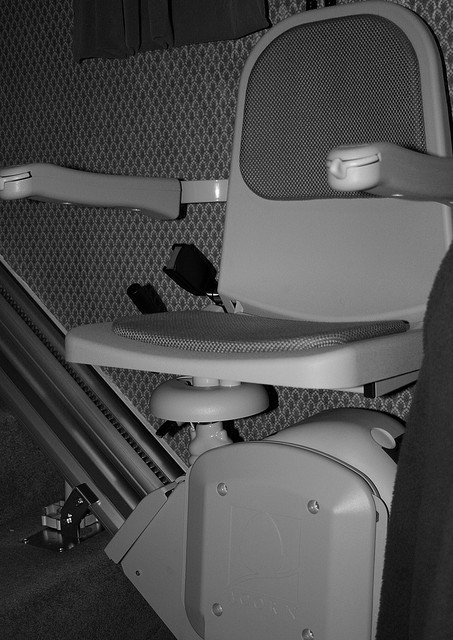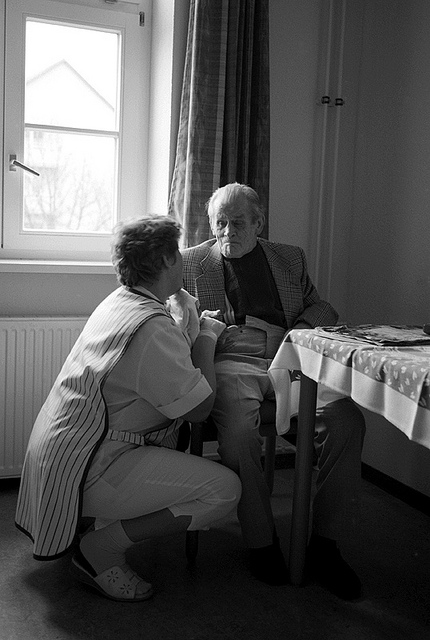Reports suggest that around 23 percent of us are worried about costs associated with ensuring our parents or other close relatives receive the necessary care they may require in the future. Many of us have seen horror stories in the media of elderly people being forced to sell their homes to afford care, but it is believed that the elderly care situation isn’t quite as bleak as is made out. In fact, it’s thought that the number of families worried about elderly care costs could be significantly reduced through easier access to information, and a better understanding of how care costs are calculated.
Worryingly, it’s estimated that there are as many as 100,000 families in the UK alone who are not aware of current schemes in place that could help them to lower the costs associated with providing care for their elderly parents and relatives. By learning more about these schemes, by understanding how the care system works in the UK, by considering different options, and by taking everything into account when calculating costs, families may find that elderly care costs aren’t quite as unaffordable as they may originally seem. Here’s everything you need to know about calculating elderly care costs.
What Affects Elderly Care Costs?
Image Flickr
It’s simple to give average costs of elderly care in the UK, but it’s important to remember that without a full assessment, it’s actually very difficult to determine exactly what care for your elderly parent or relative will cost. Many families will find themselves having to pay more – or less – than the national average. There’s many reasons for variations in cost. Here are a few of the primary reasons:
Level of Care Required
In the UK, there are currently 3 distinct levels of care for the elderly: community care, residential care, and nursing care. Community care is designed for higher functioning individuals who require a little extra assistance in the home, while residential and nursing care is designed to meet the needs of those who cannot safely remain in their own home. There’s no ‘one size fits all’ when it comes to elderly care, and so costs will vary based on individual circumstances, health, and overall wellbeing. In England, the average cost of residential care is £558 per week, while the average cost of nursing care is £738 per week.
Location
Generally speaking, we typically expect to pay more in London and the surrounding areas than we do elsewhere in the UK – for property, for groceries, and so on – and it’s no different when it comes to elderly care costs. Location can make a huge difference when it comes to calculating care costs, whether at an assisted living facility in the UK or somewhere like Chelsea Senior Living in New York (chelseaseniorliving.com/
Image Flickr
Care Home Quality
Unfortunately, not all care homes across the country offer the same quality of care for their residents – something that many of us have read about in the news. When looking at care homes in the area, families are advised to proceed with caution when approaching care homes that offer significantly lower rates than others, as this could suggest that quality is lacking. As you may expect, ‘better’ care homes tend to charge higher rates. The good news for families is that it’s very quick and easy to check on the quality and service of care homes in England. The Care Quality Commission publishes its latest reports online for browsing.
Estimating Elderly Care Costs for the Future
Calculating the exact sum that your elderly parents or relatives will be required to pay for care in the future can be difficult – if not impossible. However, it is possible to give yourself a rough idea of costs – a ‘ballpark’ figure – that can help you to take measures now to ensure a smooth transition later on.
Calculating Community Care Costs
As you may already know, it’s difficult to accurately describe what ‘community care’ really is. It’s very much an umbrella term that covers everything from relatives helping out with grocery shopping, to regular nurse visits throughout the course of the day. This variety is why it’s challenging to provide average costs for care in the community. If your elderly parent or relative remains very capable but simply requires a little extra support for day-to-day tasks, implementing a few minor changes in the home – such as installing support equipment – could be all you need to do to ensure a safe and secure environment in which to live in.
Image Flickr
The cost of installing support equipment in the home will be determined by the type of equipment required, and whether or not your parent or relative qualifies for any financial assistance from the government. Stairlifts, grab rails, and emergency response alarms are some of the most common support equipment in the UK today, helping the elderly to remain in their own home by meeting their day-to-day needs. When calculating costs based on quotations from your chosen provider, remember that if your parent or relative receives a Disabled Facilities grant, they may be eligible for financial assistance.
Should your elderly parent or relative require a higher level of care in the community, including the assistance of care providers or community nurses, a means-tested assessment will usually be undertaken which will give you a much better idea of costs. The local authority may be able to pay a portion of the community care costs based on the outcome of this assessment, or the NHS may also be able to help with community care costs. The NHS are required to provide subsidised care for at risk individuals under the Mental Health Act 1983, and may also be able to provide low cost support under the Continuing Healthcare scheme.
Calculating Care Home Costs
Figures suggest that more than half of elderly people – 57 percent to be precise – will be required to pay full care home fees or partial care home fees under current legislation. However, this doesn’t necessarily mean that you and your family should calculate care home costs based solely upon advertised rates. While your local authority won’t provide fully subsidised elderly care should your parent or relative have capital – savings or property – worth more than £23,250, there are a number of schemes that could make a significant difference to initial calculated costs. It’s vital that families know what is available to them.
The first step towards calculating elderly care costs if you expect your parent or relative to require residential or nursing care is to use a care cost calculator. The BBC care cost calculator is one of the most comprehensive online tools for working out how much your family may be required to pay for care that meets your parents’ or relatives’ specific needs. It takes into account the level of care required (residential or nursing), location of the care home, and expected length of stay, which should be based on age and prognosis. What this easy-to-use tool should give you is a realistic per-week figure for you to use as a reference point.
Once you’ve used a care cost calculator to obtain a rough figure, then it’s time to explore the different schemes available through the government and through the NHS which could significantly lower that estimated cost. Financial assistance from the NHS is perhaps more common than you may think. While care home fees for the elderly may not be entirely covered by the NHS, they do offer a scheme that sees them pay a set amount per week directly to the care home should it be determined that your parent or relative cannot safely live without care. The amount offered is usually between £112 and £150 per week.
Image Flickr
Preparing for the Future
As you’ll see, the situation of elderly care in the UK can be a little complicated at times, but this is actually a good thing. Elderly care is so complex because here in the UK we have such diverse options available that make it easier to meet the widely varying needs of the elderly. From community care to nursing care, and from local authority assistance to government grants, the current setup means that many elderly people all across the UK are able to live happy, healthy and enjoyable lives. The only downside is that it can make it harder for families to accurately calculate future care costs.
If you have aging parents or relatives who may require some level of care in the future, it’s important to start planning. While this doesn’t mean you need to start preparing in earnest for the transition, it does mean that it’s time to start thinking about what you and your family want to happen in the future. Take some time to talk to your parents about what their preferences are, and discuss any plans either of you may already have to pay for care based on the estimated care costs that you have calculated. When the time comes, being prepared can help ensure everything goes smoothly.
Post written by Harold Rigby, health & lifestyle journalist.





